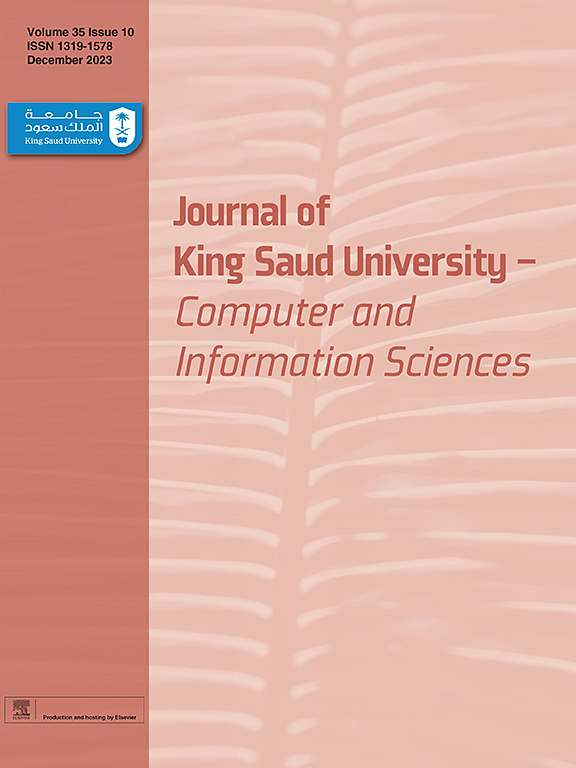Software requirement engineering over the federated environment in distributed software development process
IF 5.2
2区 计算机科学
Q1 COMPUTER SCIENCE, INFORMATION SYSTEMS
Journal of King Saud University-Computer and Information Sciences
Pub Date : 2024-09-28
DOI:10.1016/j.jksuci.2024.102201
引用次数: 0
Abstract
In the recent past, the distributed software development (DSD) process has become increasingly prevalent with the rapid evolution of the software development process. This transformation would necessitate a robust framework for software requirement engineering (SRE) to work in federated environments. Using the federated environment, multiple independent software entities would work together to develop software, often across organizations and geographical borders. The decentralized structure of the federated architecture makes requirement elicitation, analysis, specification, validation, and administration more effective. The proposed model emphasizes flexibility and agility, leveraging the collaboration of multiple localized models within a diversified development framework. This collaborative approach is designed to integrate the strengths of each local process, ultimately resulting in the creation of a robust software prototype. The performance of the proposed DSD model is evaluated using two case studies on the E-Commerce website and the Learning Management system. The proposed model is analyzed by considering divergent functional and non-functional requirements for each of the case studies and analyzing the performance using standardized metrics like mean square error (MSE), mean absolute error (MAE), and Pearson Correlation Coefficient (PCC). It is observed that the proposed model exhibited a reasonable performance with an MSE value of 0.12 and 0.153 for both functional and non-functional requirements, respectively, and an MAE value of 0.222 and 0.232 for both functional and non-functional requirements, respectively.
分布式软件开发过程中联合环境下的软件需求工程
近年来,随着软件开发流程的快速发展,分布式软件开发(DSD)流程变得越来越普遍。这种转变需要一个强大的软件需求工程(SRE)框架,以便在联合环境中工作。利用联盟环境,多个独立的软件实体将共同开发软件,而且往往跨越组织和地理边界。联合架构的分散结构使需求激发、分析、规范、验证和管理更加有效。建议的模式强调灵活性和敏捷性,在一个多样化的开发框架内利用多个本地化模型的协作。这种协作方法旨在整合每个本地流程的优势,最终创建一个强大的软件原型。通过对电子商务网站和学习管理系统的两个案例研究,对所提出的 DSD 模型的性能进行了评估。通过考虑每个案例研究的不同功能和非功能需求,并使用均方误差 (MSE)、平均绝对误差 (MAE) 和皮尔逊相关系数 (PCC) 等标准化指标分析了所提出模型的性能。结果表明,所提出的模型表现出合理的性能,对功能性和非功能性需求的 MSE 值分别为 0.12 和 0.153,对功能性和非功能性需求的 MAE 值分别为 0.222 和 0.232。
本文章由计算机程序翻译,如有差异,请以英文原文为准。
求助全文
约1分钟内获得全文
求助全文
来源期刊

Journal of King Saud University-Computer and Information Sciences
COMPUTER SCIENCE, INFORMATION SYSTEMS-
CiteScore
10.50
自引率
8.70%
发文量
656
审稿时长
29 days
期刊介绍:
In 2022 the Journal of King Saud University - Computer and Information Sciences will become an author paid open access journal. Authors who submit their manuscript after October 31st 2021 will be asked to pay an Article Processing Charge (APC) after acceptance of their paper to make their work immediately, permanently, and freely accessible to all. The Journal of King Saud University Computer and Information Sciences is a refereed, international journal that covers all aspects of both foundations of computer and its practical applications.
 求助内容:
求助内容: 应助结果提醒方式:
应助结果提醒方式:


